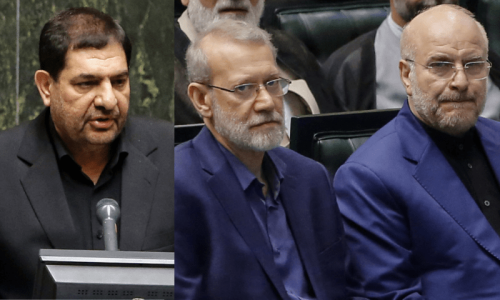ABOUT a week ago, in events disturbingly reminiscent of the Jan 6, 2021 attack on the US Capitol that followed US president Donald Trump’s defeat in elections, supporters of the Brazilian Trump copycat Jair Bolsonaro stormed Brazil’s Congress, supreme court and presidential palace.
This came after months of Bolsonaro, sticking to Trump’s playbook, refusing to concede defeat in the presidential elections till the very last moment, and peddling the unproven narrative of rigged elections while inciting his followers to violent acts, which ranged from threatening supporters of his political opponent to blocking roads and creating social unrest. Events culminated in hordes of his overzealous followers storming critical government buildings.
After a presidency that was in part won by adapting Trump’s playbook to the Brazilian situation, and exploiting society’s fissures and fault lines, the Bolsonaro regime upped the ante through its hateful rhetoric, violence, and disdain for the facts — the last leading to a large number of deaths by Covid after Bolsonaro refused to take timely preventive measures to curtail the spread of the virus. As one saw in the US, fomenting hate and fostering its devotees led to a sharp rise in violence, which wreaked havoc on Brazilian society and polity.
Thanks to lopsided liberal economic policies and empowered crony capitalism, Brazil, and the world as well, has lost much biodiversity in the Amazon rainforest.
It’s all too easy to sow the seeds of hate.
Under Bolsonaro, there was a constant cutback on social welfare, leading to suffering for the most vulnerable segments of Brazilian society. But Bolsonaro stuck to demagoguery, and responded with bluster whenever questioned about his government’s plan of action, or lack thereof. Closer to home, another world leader who has applied the same playbook is India’s Narendra Modi.
All this should serve as a warning to Pakistani society, especially as national elections are expected to be held this year. Millions are still reeling from the devastation caused by the unprecedented floods of 2022 in the country. The misery continues to spread as people bear the burden of skyrocketing prices of essential goods amplified by supply chain issues and import controls. The unrelenting — in fact, worsening — economic situation has compounded public misery, and misinformation has been added to the mix. The social media machine is in overdrive, peddling half-truths and full lies with little restraint.
Political parties have active social media wings run by tech-savvy youth whose job, it seems, is to weaponise information against political opponents. It is well-known that the US usually pioneers strategies and harnesses technologies and the world follows suit, thus it sets trends and shapes the manner in which discourse in society proceeds. This was seen throughout Trump’s presidency. We have seen the same elements in the Bolsonaro and Modi governments.
Trump’s pioneering use of social media in new and frighteningly effective ways to rally support has inspired demagogues around the world, including Marine Le Pen in France, Itamar Ben-Gvir in Israel, Bolsonaro in Brazil, and Modi in India, among others. Such momentum is built up by deploying anger and hate towards those seen as the enemy. At present, the fissures within Pakistani society run deep; rarely has the country seen such vast divisions not only over issues but also cultish personalities, motivated by anger rather than political agendas.
The election, whenever it takes place, will be heavily contested and the challenge is to ensure that sanity prevails. Active steps need to be taken by the government, the mainstream media, and civil society — as it is a social responsibility — to inform the public about the dangers of fake news, disinformation, and tainted narratives.
At the other end, political parties and leaders are in dire need of an exercise in soul-searching to examine whether the cost of attaining (usually very short-lived power) is worth irreparably damaging institutions and society in the country and pushing them towards greater chaos. It is easy to sow the seeds of hate, but impossible to control what follows.
The deeply complex social and demographic landscape of India is already reaping what the BJP and Modi have sown with regular lynchings, sexual violence against women and rampant state-endorsed violence against minorities and political opponents.
Time is running out as new elections are already on the horizon. Society and the politicians have to make sane choices if they want to avoid the fallout of toxic narratives.
The writer is editor at the Centre for Aerospace and Security Studies, Lahore.
casslahore@gmail.com
Published in Dawn, January 16th, 2023










































